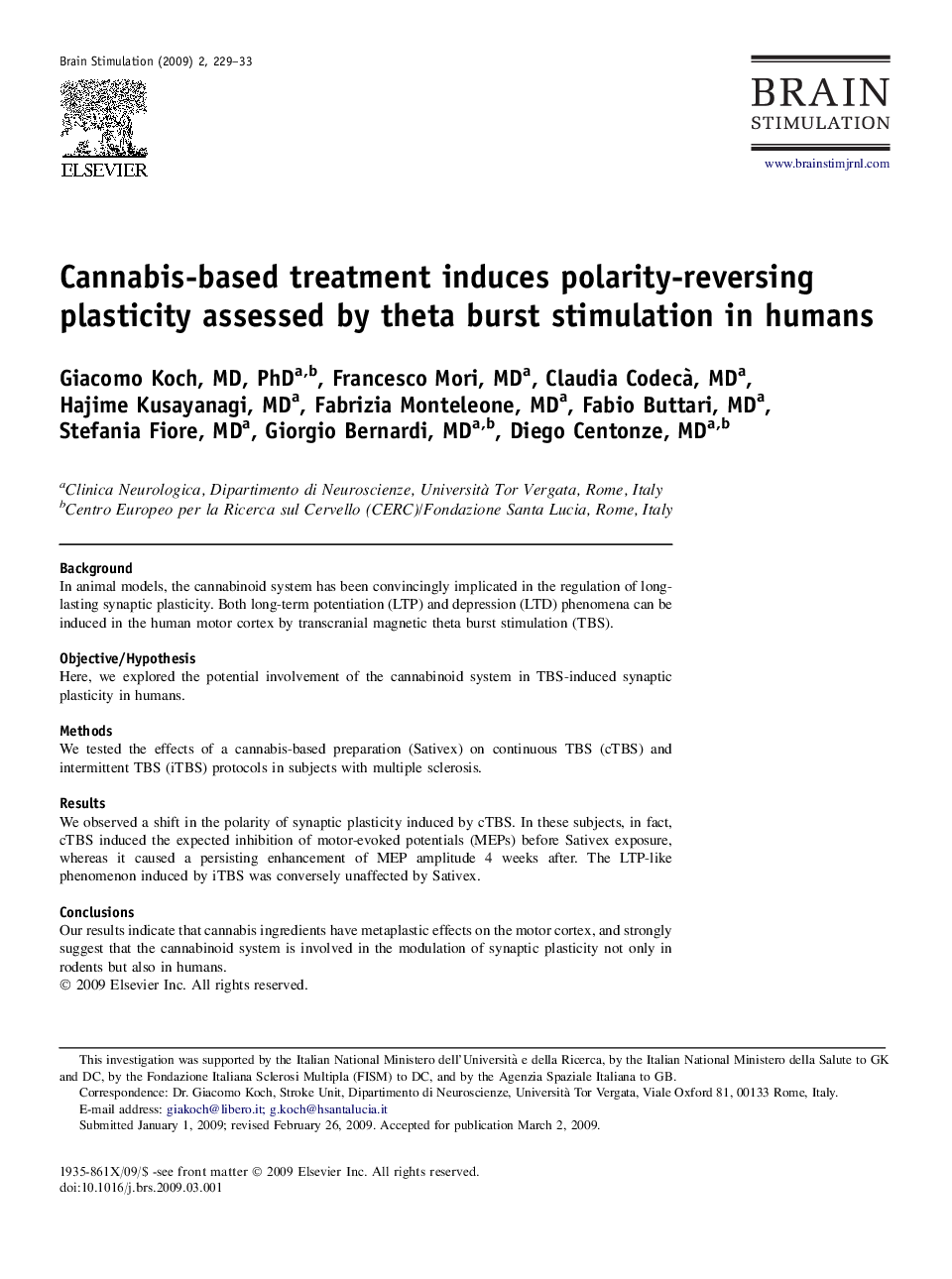| Article ID | Journal | Published Year | Pages | File Type |
|---|---|---|---|---|
| 3038834 | Brain Stimulation | 2009 | 5 Pages |
BackgroundIn animal models, the cannabinoid system has been convincingly implicated in the regulation of long-lasting synaptic plasticity. Both long-term potentiation (LTP) and depression (LTD) phenomena can be induced in the human motor cortex by transcranial magnetic theta burst stimulation (TBS).Objective/HypothesisHere, we explored the potential involvement of the cannabinoid system in TBS-induced synaptic plasticity in humans.MethodsWe tested the effects of a cannabis-based preparation (Sativex) on continuous TBS (cTBS) and intermittent TBS (iTBS) protocols in subjects with multiple sclerosis.ResultsWe observed a shift in the polarity of synaptic plasticity induced by cTBS. In these subjects, in fact, cTBS induced the expected inhibition of motor-evoked potentials (MEPs) before Sativex exposure, whereas it caused a persisting enhancement of MEP amplitude 4 weeks after. The LTP-like phenomenon induced by iTBS was conversely unaffected by Sativex.ConclusionsOur results indicate that cannabis ingredients have metaplastic effects on the motor cortex, and strongly suggest that the cannabinoid system is involved in the modulation of synaptic plasticity not only in rodents but also in humans.
